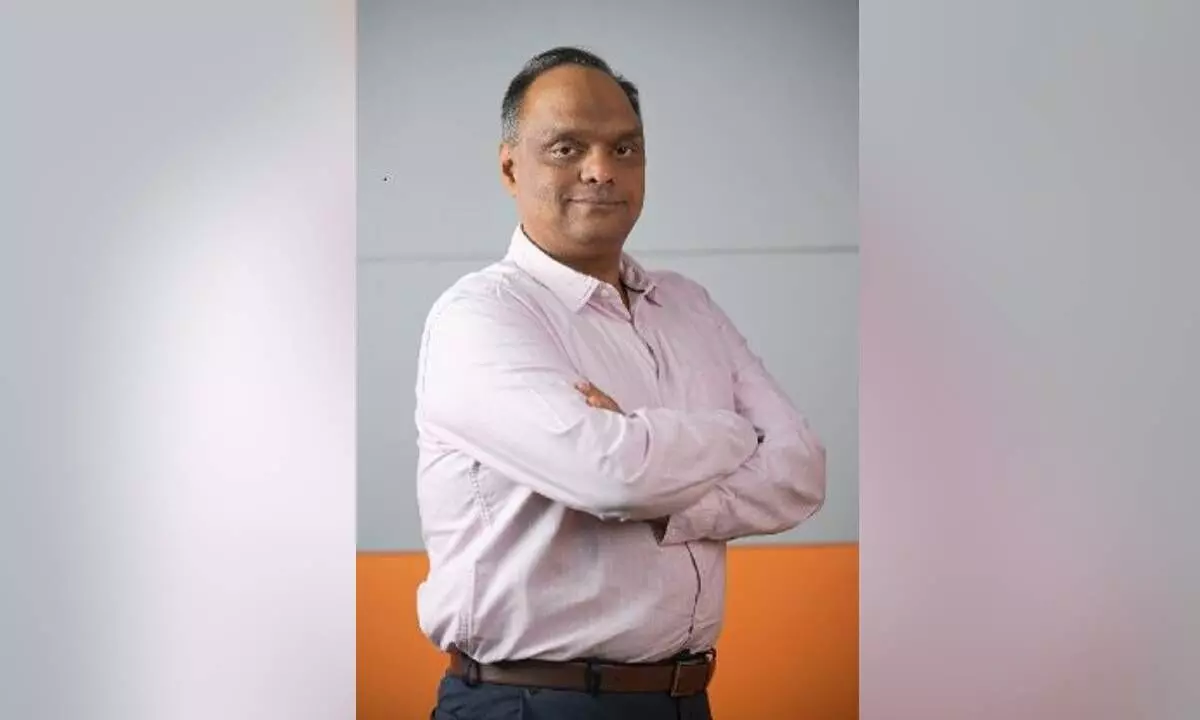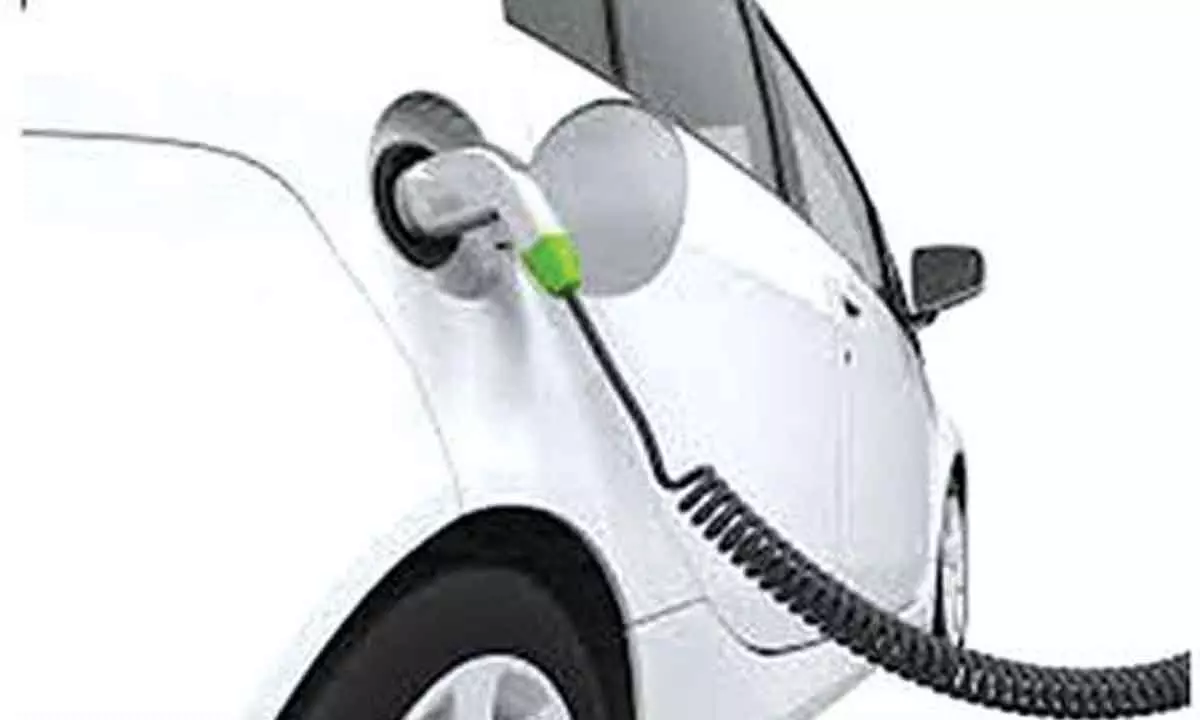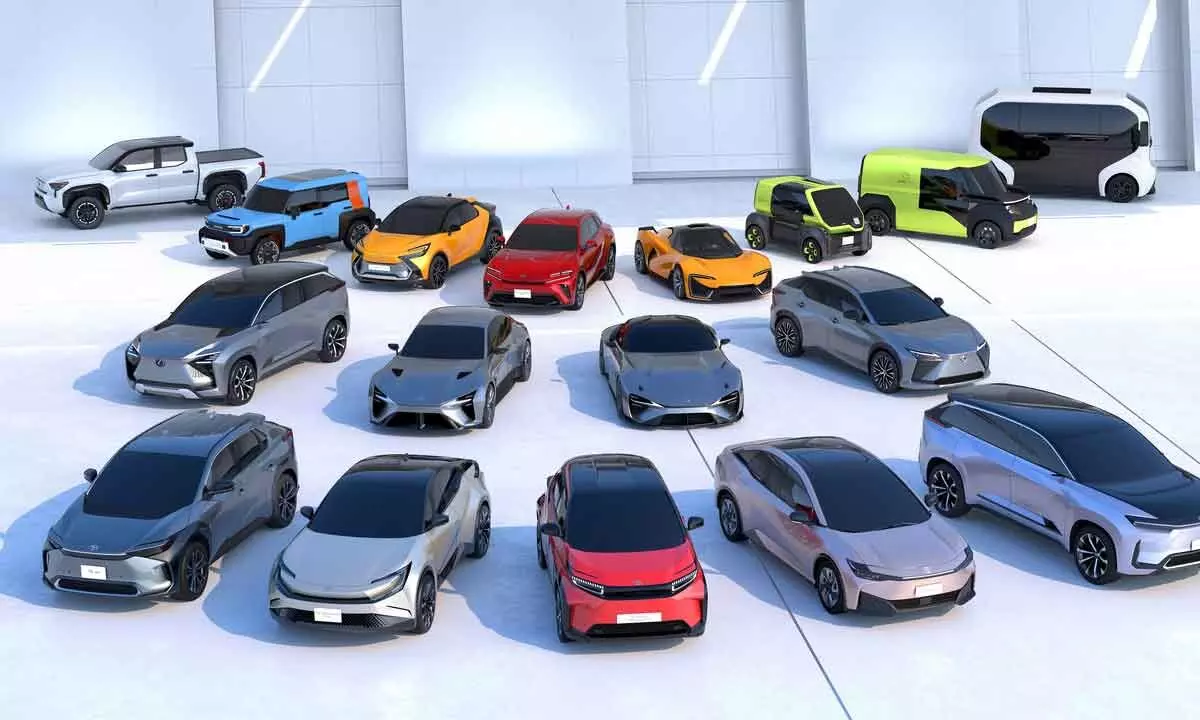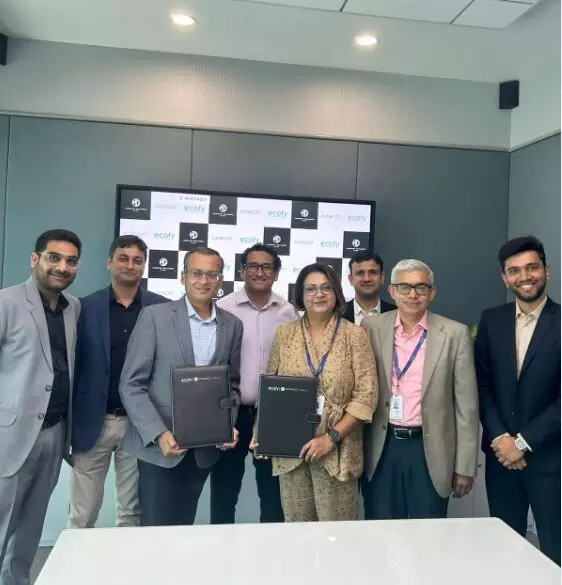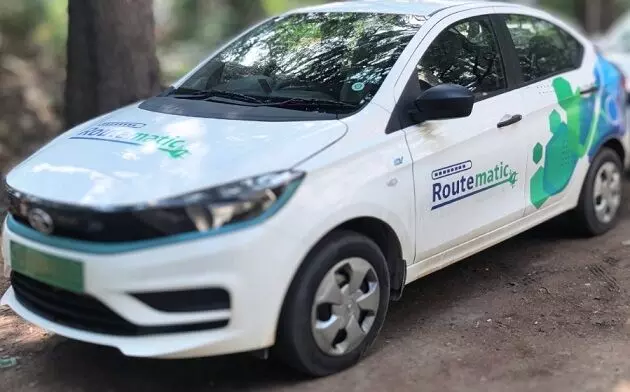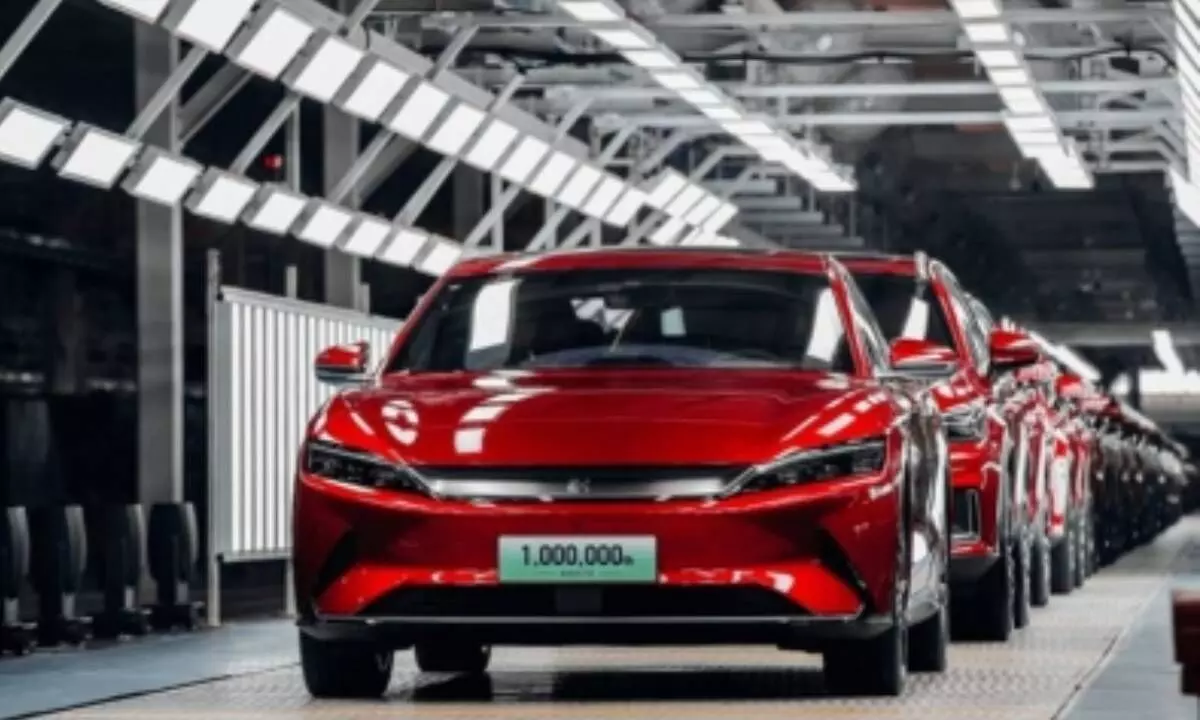
Maruti Suzuki’s inaugural electric vehicle (EV), the eVX, has been spotted testing in India, offering a glimpse into what this highly anticipated model will bring to the burgeoning Indian EV market. The eVX, a compact SUV, has been seen on Indian roads with recent spy photos revealing notable design updates and features.
Key Features and Updates
Exterior Design
Alloy Wheels: The latest spy photos highlight a redesign in the eVX’s alloy wheels, shifting from the previously spotted 10-spoke design to a sleeker 5-spoke configuration, likely measuring 16 inches or larger.
Door Handles: The prototype maintains the unique rear door handles mounted on the C-pillar, a nod to the older Swift model, deviating from the initial concept version’s design.
Lighting: The eVX will feature advanced lighting, including LED headlights, daytime running lights (DRLs), a full-width LED light bar, and a high-mounted stop lamp. Additional design elements include a rear spoiler and a shark-fin antenna.
Interior and Features
Modern Amenities: Inside, the eVX promises a futuristic experience with a large touchscreen infotainment system supporting wireless Android Auto and Apple CarPlay, a digital instrument panel, wireless charging, and ventilated front seats.
Comfort and Convenience: The vehicle is expected to come with automatic climate control, an electrically adjustable driver’s seat, and an auto-dimming rearview mirror, providing enhanced comfort and convenience.
Powertrain and Performance
The eVX is built on a new electric skateboard platform designed to maximize interior space and support a sizeable battery pack. Maruti Suzuki has equipped the eVX with a 60 kWh battery, offering an estimated driving range of up to 550 kilometers on a single charge. This positions the eVX as a formidable contender in the Indian EV market, providing both long-range capability and the practical benefits of a compact SUV.
Market Entry and Expectations
Slated for launch next year, the Maruti Suzuki eVX marks the company’s significant leap into the electric vehicle market. The extensive testing and evolving design underscore Maruti Suzuki’s commitment to integrating innovative features while maintaining the practicality and affordability that the brand is known for. With its blend of modern design, advanced technology, and robust performance, the eVX aims to capture a substantial share of the EV market in India.
As anticipation builds, the eVX’s development reflects Maruti Suzuki’s strategic approach to introducing electric vehicles, catering to the growing demand for sustainable and efficient transportation solutions in India.
